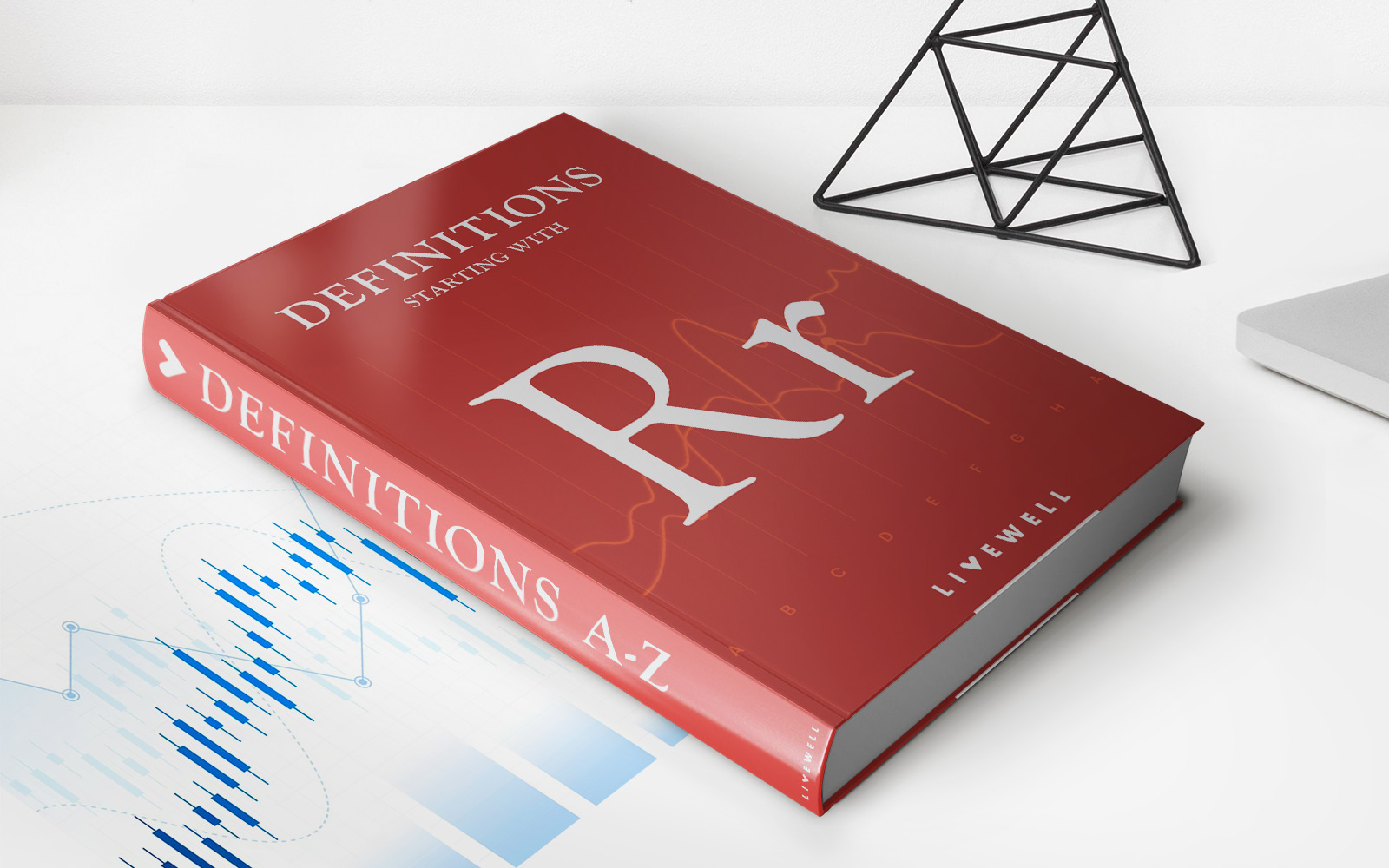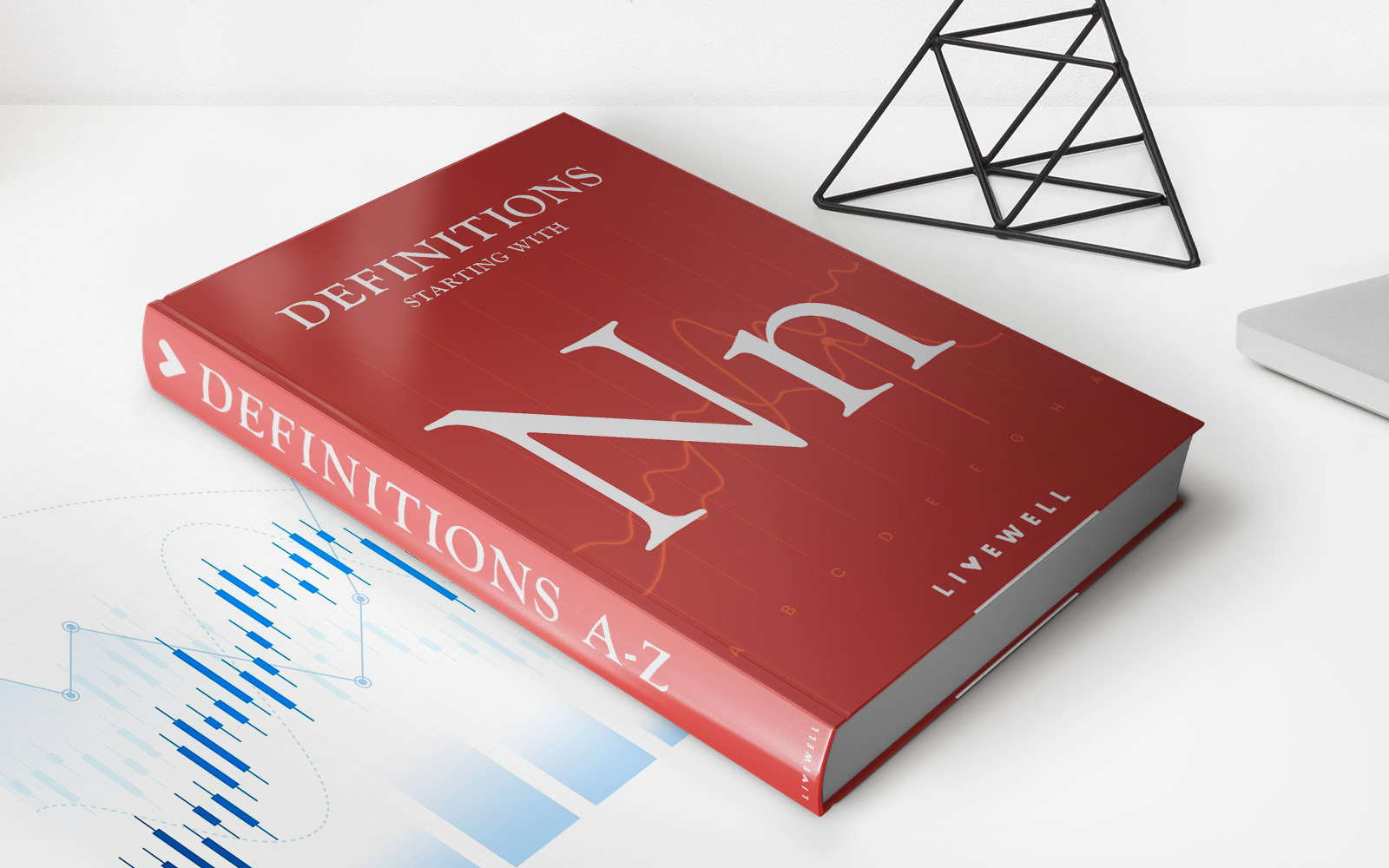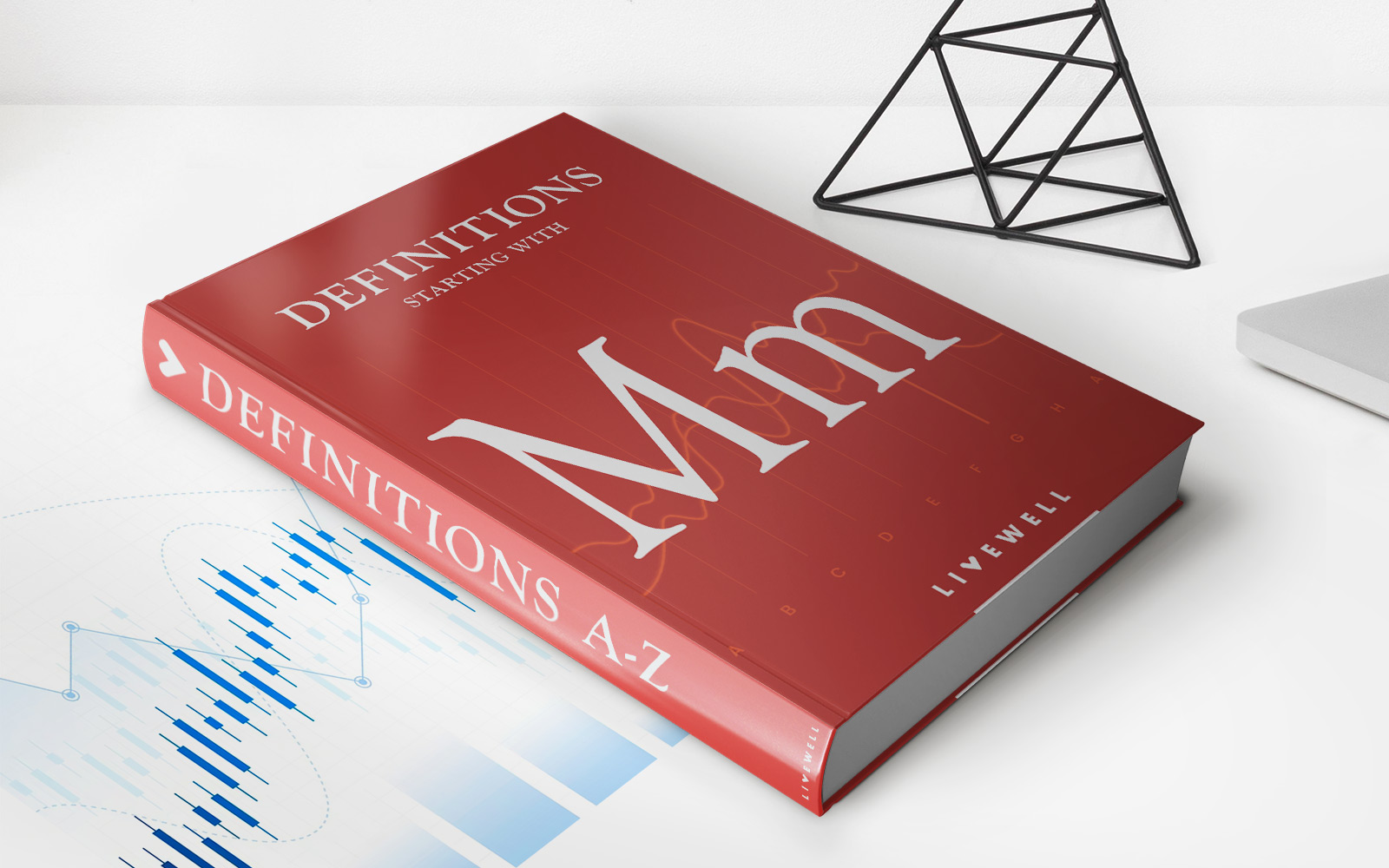

Finance
When Do You Pay Back Private Student Loans
Modified: February 21, 2024
Discover the best time to start repaying your private student loans and managing your finances effectively with our expert finance tips and guidance.
(Many of the links in this article redirect to a specific reviewed product. Your purchase of these products through affiliate links helps to generate commission for LiveWell, at no extra cost. Learn more)
Table of Contents
Introduction
Pursuing higher education often comes with a hefty price tag, and many students rely on loans to finance their education. While federal student loans are a popular option, private student loans also play a significant role in helping students cover the costs of tuition, textbooks, and living expenses. Private student loans are offered by banks, credit unions, and other financial institutions, and they can provide additional funds when federal loans fall short.
However, taking out a private student loan means entering into a financial commitment that must be repaid over time. Understanding the repayment process for private student loans is crucial to avoid any financial hardships or future complications. In this article, we will explore when you need to start repaying private student loans and various options available to make the repayment process more manageable.
Before diving into the specifics, it’s important to note that private student loans differ from federal loans in several ways. Private student loans often come with higher interest rates, variable interest rates, and fewer flexible repayment options. While federal loans typically offer deferment and forbearance options during periods of financial hardship, private student loans may not provide the same level of flexibility.
Navigating the repayment journey for private student loans can be a challenging task, but by understanding your options and developing a solid repayment strategy, you can successfully manage your loan obligations. From deferment and forbearance to consolidation and acceleration, there are various avenues to explore when it comes to repaying your private student loans.
In the following sections, we will delve deeper into the different aspects of repaying private student loans and discuss some helpful tips to streamline the repayment process. So, let’s dive in and explore the world of private student loan repayment!
Understanding Private Student Loans
Private student loans are education loans that are offered by private lenders such as banks, credit unions, and online lending institutions. Unlike federal student loans, which are funded by the government, private student loans are provided by private entities and typically have different terms and conditions.
One key feature of private student loans is that they often require a credit check. This means that the lender will assess your credit history and credit score before determining whether or not to approve your loan application. If you have a limited credit history or a lower credit score, you may need a cosigner—a person who agrees to take responsibility for the loan if you are unable to make payments—to be eligible for a private student loan.
Another important characteristic of private student loans is that they typically have higher interest rates compared to federal student loans. Interest rates for private loans can vary depending on factors such as your creditworthiness, the lender’s policies, and prevailing market rates. It’s important to carefully consider the interest rates and repayment terms offered by different lenders to ensure that you choose the loan that best fits your financial situation.
Private student loans also often lack the flexible repayment options available with federal loans. While federal loans offer income-driven repayment plans, loan forgiveness programs, and options for deferment and forbearance, private loans may not provide the same level of flexibility. Before taking out a private student loan, it’s important to carefully review the repayment terms and understand your options in the event of financial hardship.
Additionally, it’s important to note that private student loans are not eligible for federal loan benefits such as Public Service Loan Forgiveness (PSLF) or certain loan forgiveness programs targeted towards specific professions. If you anticipate pursuing a career that may make you eligible for loan forgiveness or discharge, it’s important to carefully evaluate whether a private loan is the right choice for you.
Before making any decisions about private student loans, it’s wise to compare different lenders and loan offers to ensure that you secure the most favorable terms. Consider factors such as interest rates, repayment terms, fees, and any other applicable terms and conditions. Researching and comparing multiple lenders will empower you to make an informed decision and find the loan that best suits your needs and financial goals.
Now that we’ve gained a better understanding of private student loans, let’s explore the various options available for repaying these loans.
Repayment Options for Private Student Loans
When it comes to repaying private student loans, it’s important to explore the available options to ensure that you can manage your loan obligations effectively. While private loans may not offer as many repayment alternatives as federal loans, there are still strategies you can employ to make the process more manageable.
1. Standard Repayment: This is the most common repayment option for private student loans. It involves making fixed monthly payments over a designated period of time, typically 5 to 20 years. While this option may result in higher monthly payments, it allows you to pay off the loan faster and reduces the total interest paid over the life of the loan.
2. Graduated Repayment: Graduated repayment plans start with lower monthly payments that increase over time. This option is beneficial for borrowers who anticipate their income to increase in the future, allowing them to start with lower payments and gradually pay more as their earning potential grows.
3. Income-Based Repayment: Although not as common with private student loans, some lenders offer income-based repayment options. These plans calculate your monthly payments based on a percentage of your income, ensuring that your payments remain affordable based on your current earnings. However, keep in mind that income-based repayment plans may extend the repayment period, resulting in higher interest over time.
4. Interest-Only Payments: Some lenders allow borrowers to make interest-only payments for a set period, typically a year or two. During this time, you are only responsible for paying the accrued interest on the loan, helping to reduce your monthly obligation.
5. Extra Payments: Making extra payments towards your private student loan can significantly reduce the repayment timeline and save on interest. Consider allocating any additional income, such as bonuses or tax refunds, towards paying down your loan balance.
6. Refinancing: Refinancing is an option to consider if you have improved your credit score since taking out your loan or if interest rates have dropped significantly. By refinancing, you can secure a new loan with better terms, such as a lower interest rate or a shorter repayment period. However, be cautious when refinancing federal loans, as you may lose out on certain benefits and protections.
Remember, the specific repayment options available to you may vary depending on the lender and the terms of your loan agreement. It’s essential to reach out to your lender to understand the specific repayment options and requirements that apply to your private student loans.
In the next section, we will explore deferment and forbearance options for private student loans, which can provide temporary relief in times of financial hardship.
Deferment and Forbearance
Deferment and forbearance are options that provide temporary relief from making payments on your private student loans. These options can be helpful in situations where you are facing financial hardship or experiencing other circumstances that make it difficult to meet your loan obligations.
Deferment: Deferment allows you to temporarily postpone making payments on your private student loans. During the deferment period, interest may or may not accrue, depending on the terms of your loan. Deferment periods are typically granted for specific reasons, such as enrollment in graduate school, active military duty, or economic hardship. It’s important to note that deferment options for private student loans may be more limited compared to federal loans, so it’s crucial to check with your lender regarding eligibility and the specific terms of deferment.
Forbearance: Forbearance is another option that allows you to temporarily pause or reduce your loan payments. Unlike deferment, interest typically continues to accrue during forbearance periods, which means your loan balance may increase over time. Forbearance is often granted in situations where you are experiencing financial difficulties, such as unemployment or medical emergencies. Similar to deferment, private student loan forbearance options vary depending on the lender, so it’s essential to understand the terms and conditions specific to your loan.
It’s important to note that both deferment and forbearance should be used as temporary solutions. While they can provide relief in times of financial hardship, it’s crucial to resume regular loan payments as soon as your situation improves. Extended periods of deferment or forbearance can lead to higher interest accrual and ultimately extend the repayment timeline.
When considering deferment or forbearance, reach out to your lender to discuss your options and the potential impacts on your loan. Some lenders may require documentation or evidence of your circumstances, so be prepared to provide the necessary information.
In the next section, we will explore grace periods for private student loans, which can provide additional time before you are required to start making payments.
Grace Periods for Private Student Loans
A grace period is a specified period of time after you graduate, leave school, or drop below half-time enrollment when you are not required to make loan payments on your private student loans. Grace periods for private student loans may vary depending on the lender and the terms of your loan agreement.
While federal student loans typically have a standard six-month grace period before repayment begins, private student loans can have varying grace periods. Some lenders may offer a grace period of a few months, while others may not provide a grace period at all. It’s important to carefully review the terms of your loan agreement to understand when you are expected to start making payments.
During the grace period, interest may or may not accrue on your private student loans. If interest is accruing, it’s a good idea to consider making interest-only payments during this time to prevent it from capitalizing and adding to your loan balance.
The grace period serves as a transition period after you complete your education, giving you time to get settled financially and start your career before you begin making loan payments. It’s crucial to take advantage of this time to plan and prepare for the upcoming repayment responsibilities.
Use the grace period to review your financial situation, create a budget, and explore repayment options available to you. Research different lenders, repayment plans, and loan assistance programs to determine the best strategy for managing your loan repayment. This period can also be an opportune time to reach out to your lender with any questions and to discuss your repayment plan in more detail.
Remember that the grace period is a valuable opportunity to get a head start on your loan repayment journey. By using this time to educate yourself and prepare financially, you can establish a solid foundation for successfully managing your private student loans.
In the next section, we will explore loan consolidation options for private student loans, which can simplify the repayment process and potentially save you money.
Loan Consolidation Options
Loan consolidation is a process that allows you to combine multiple loans into a single loan with a new interest rate and repayment term. Consolidating your private student loans can provide several benefits, including simplifying the repayment process, potentially lowering your interest rate, and managing your loan more efficiently.
Here are some loan consolidation options to consider for your private student loans:
1. Private Loan Consolidation: Private loan consolidation involves combining multiple private student loans into a single loan with one lender. This allows you to streamline your repayment by making a single monthly payment instead of managing multiple loans. Additionally, you may have the opportunity to secure a lower interest rate, which can save you money over the life of the loan.
2. Federal Loan Consolidation: Although private student loans cannot be consolidated with federal loans through a federal consolidation program, you can consolidate your federal loans separately. Federal loan consolidation combines multiple federal loans into a single loan with a fixed interest rate. While this doesn’t directly affect your private student loans, consolidating your federal loans can make managing your overall student loan debt more convenient.
3. Refinancing with a New Lender: Refinancing involves taking out a new loan with a different lender to pay off your existing private student loans. This allows you to potentially secure a lower interest rate, change your repayment terms, or modify other aspects of your loan. However, it’s important to carefully consider the terms and conditions of the refinanced loan to ensure it aligns with your financial goals.
Before deciding to consolidate or refinance your private student loans, it’s important to evaluate the pros and cons and consider any potential impacts. Consolidating your loans may extend the repayment period, resulting in more interest paid over time. Additionally, if you choose to refinance federal loans, you may lose out on certain federal benefits and protections, such as income-driven repayment plans or loan forgiveness programs.
Research various lenders and compare their consolidation or refinancing offers, including interest rates, repayment terms, fees, and any other applicable terms. It’s also important to review your credit score and financial situation to determine your eligibility and access the best rates and terms possible.
In the next section, we will discuss when repayment of private student loans is expected to begin and the factors that can affect the repayment timeline.
When Must Repayment Begin?
The specific timeline for when repayment of private student loans begins can vary depending on the lender and the terms of your loan agreement. Unlike federal student loans that typically have a grace period of six months after graduation, private student loans may have different requirements and may not offer a standard grace period.
Generally, repayment of private student loans begins after the grace period ends, if a grace period is provided. If no grace period is offered, you may be required to start making payments immediately upon entering repayment status.
It’s important to carefully review the terms of your loan agreement to determine when your repayment will begin. Some lenders may require monthly payments during the grace period, while others may allow you to defer payments until after the grace period ends.
To ensure you are prepared for repayment, closely monitor any communications from your lender regarding your loan status and repayment schedule. If you are unsure about when your repayment is expected to begin, reach out to your lender for clarification.
If you are still in school or planning to attend graduate school, it’s important to consider whether you can continue to defer your private student loan payments during this time. Some lenders may offer deferment options for borrowers who are pursuing additional education. However, it’s crucial to understand the terms and conditions of these options and check with your lender for eligibility and documentation requirements.
Additionally, if you have multiple private student loans with different lenders, be aware that each loan may have its own repayment timeline. It is important to keep track of each loan’s repayment schedule to avoid missing any payments.
Remember, timely payment of your private student loans is crucial to maintaining a good credit score and avoiding negative consequences such as penalties, late fees, and potential damage to your credit history. Develop a budget and plan ahead to ensure you can comfortably meet your repayment obligations.
In the next section, we will explore the factors that can affect the repayment timeline of private student loans.
Factors Affecting Loan Repayment
Several factors can influence the repayment timeline of your private student loans. Understanding these factors can help you navigate the repayment process more effectively and make informed decisions about managing your loan obligations.
1. Loan Terms: The terms of your loan agreement, including the interest rate, repayment period, and any prepayment penalties, can significantly impact your repayment timeline. Loans with shorter repayment periods typically require higher monthly payments but result in a quicker repayment. Higher interest rates can also prolong the repayment timeline and increase the total amount paid over the life of the loan.
2. Income and Finances: Your income and financial situation play a crucial role in determining how quickly you can repay your private student loans. If you have a higher income, you may be able to dedicate more funds towards loan repayment, reducing the overall repayment timeline. Conversely, if your income is lower or you are facing financial difficulties, you may need to explore alternative repayment options or seek assistance to manage your loan obligations.
3. Repayment Plan: The repayment plan you choose for your private student loans can affect the duration of your repayment timeline. Standard repayment plans typically have higher monthly payments but result in a shorter repayment period. Graduated or income-based repayment plans may extend the repayment timeline but offer lower initial payments, allowing for gradual increases over time or payments based on your income.
4. Extra Payments: Making extra payments towards your private student loans can significantly shorten the repayment timeline. By allocating additional funds towards your loan balance, you can reduce the principal amount and decrease the amount of interest paid over time. Consider budgeting for extra payments whenever possible to accelerate your loan repayment.
5. Financial Hardship: If you encounter financial hardship, such as a job loss or a significant medical expense, it may impact your ability to make regular loan payments. During such times, seeking deferment, forbearance, or exploring income-driven repayment options can provide temporary relief and potentially extend the repayment timeline.
6. Interest Accrual and Capitalization: The accrual of interest on your private student loans can affect the total amount repaid and the overall repayment timeline. It’s important to understand whether interest accrues during grace periods, deferment, or forbearance and to make interest-only payments when possible to prevent it from capitalizing and compounding.
Monitoring and evaluating these factors, along with regular communication with your lender, can help you stay on top of your loan obligations and make informed decisions to effectively manage your repayment. It may also be helpful to consult with a financial advisor or student loan counselor for guidance tailored to your specific circumstances.
In the next section, we will provide some helpful tips for paying off your private student loans.
Tips for Paying Off Private Student Loans
Managing and paying off private student loans can be a significant financial undertaking. Here are some tips to help you navigate the repayment process and pay off your loans efficiently:
1. Create a Budget: Establish a monthly budget that outlines your income, expenses, and debt obligations. Allocate a portion of your income towards your loan payments and prioritize making consistent and timely payments.
2. Make Extra Payments: Whenever possible, make extra payments towards your loan principal. Even small additional payments can add up over time and help reduce the overall interest paid and the length of your repayment period.
3. Consider Loan Refinancing: Explore refinancing options to potentially secure a lower interest rate, reduce monthly payments, or shorten the repayment timeline. However, carefully evaluate the terms and conditions of any refinanced loan before making a decision.
4. Utilize Automatic Payments: Set up automatic payments with your lender to ensure that your monthly payments are made on time. Many lenders offer an interest rate reduction for borrowers who enroll in automatic payment programs.
5. Seek Employment Benefits: Explore whether your employer offers any student loan repayment assistance programs or benefits. Some companies provide financial incentives to help employees pay off their student loans faster.
6. Avoid Default: Defaulting on your private student loans can have severe consequences, including damage to your credit score and potential legal action by the lender. If you are facing financial hardship, reach out to your lender to discuss alternative repayment options such as deferment or forbearance.
7. Reduce Expenses: Cut back on discretionary spending and unnecessary expenses to free up extra money that can be put towards your loan payments. Consider adjusting your lifestyle temporarily to focus on paying off your debt.
8. Explore Loan Forgiveness Programs: While private student loans are not typically eligible for federal loan forgiveness programs, some occupations or organizations may offer loan forgiveness or repayment assistance. Research whether you qualify for any specialized loan forgiveness programs or explore options to work in public service or eligible fields for loan forgiveness.
9. Stay Informed: Continuously educate yourself about your loan terms, repayment options, and any changes in laws or regulations related to student loans. Stay in touch with your lender and review your loan statements regularly to ensure accuracy.
Remember, paying off your private student loans requires commitment and diligence. By adopting these tips and staying proactive, you can make progress towards becoming debt-free and achieve long-term financial stability.
In closing, repaying private student loans may seem overwhelming, but with careful planning and disciplined financial management, you can successfully navigate the repayment process and achieve your goal of becoming debt-free.
Conclusion
Repaying private student loans is a significant financial responsibility, but with careful planning and proactive strategies, you can successfully manage your loan obligations. Understanding the various repayment options, such as standard repayment, graduated repayment, and income-based repayment, can help you choose the most suitable plan for your financial situation.
Additionally, exploring deferment and forbearance options during times of financial hardship can provide temporary relief, while loan consolidation or refinancing can streamline the repayment process and potentially save you money.
It’s essential to stay informed about the terms of your loan agreement, including interest rates, repayment periods, and any grace periods or special conditions. By establishing a budget, making extra payments whenever possible, and utilizing automatic payment options, you can stay on track and make consistent progress in paying off your private student loans.
Remember to explore potential employer benefits or loan forgiveness programs that may be available to you. Additionally, seeking guidance from a financial advisor or student loan counselor can provide valuable insights tailored to your unique circumstances.
Paying off your private student loans requires commitment, discipline, and long-term financial planning. By implementing the tips outlined in this article and staying proactive in your repayment journey, you can achieve financial freedom and pave the way for a bright future.
Keep in mind that everyone’s financial situation is different, and there is no one-size-fits-all approach to repaying private student loans. It’s important to assess your own circumstances and seek professional advice when needed to make the best decisions for your financial well-being.
With proper planning, perseverance, and a proactive mindset, you can successfully navigate the repayment of your private student loans and move towards a debt-free future.














